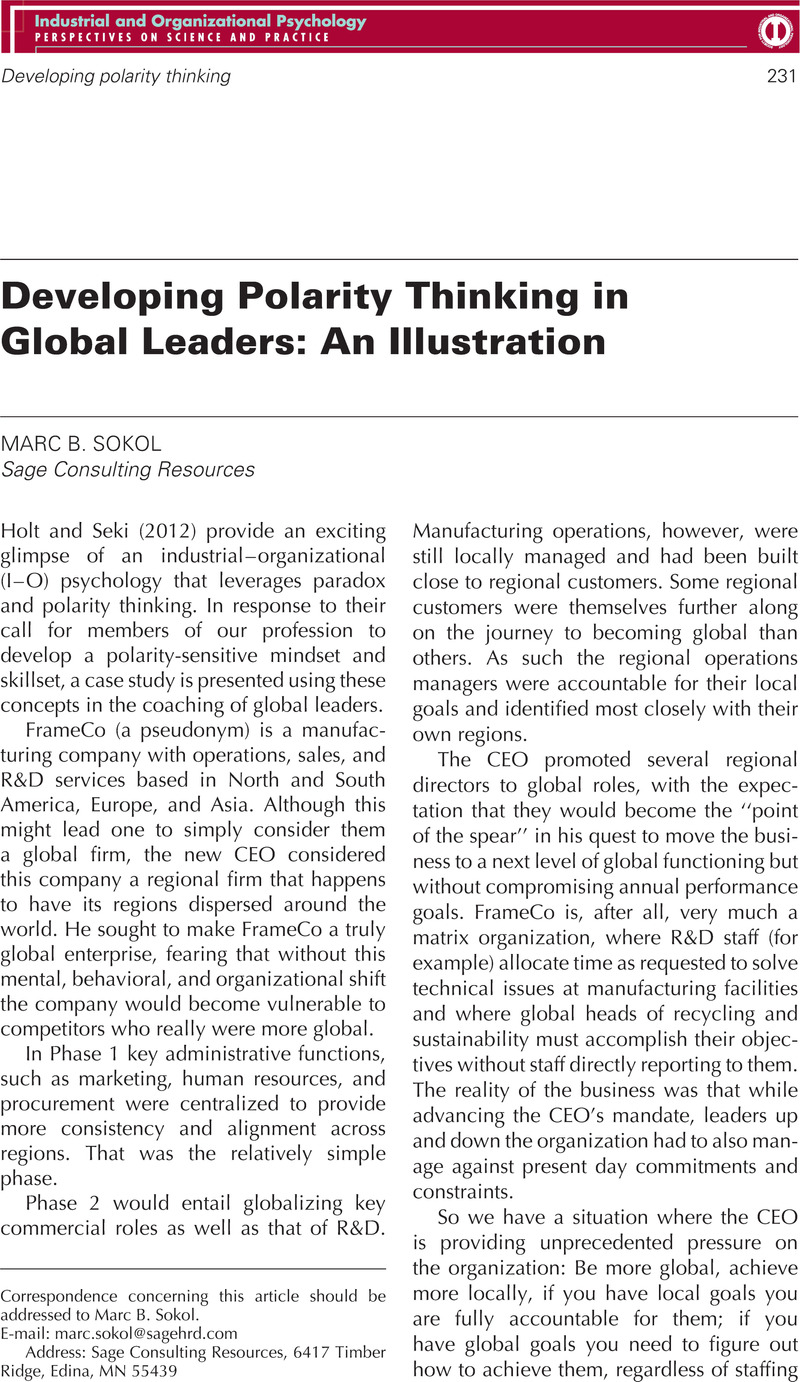Crossref Citations
This article has been cited by the following publications. This list is generated based on data provided by Crossref.
Seki, Kyoko
and
Holt, Katherine
2012.
Global Leadership to Transform the World.
Industrial and Organizational Psychology,
Vol. 5,
Issue. 2,
p.
248.



